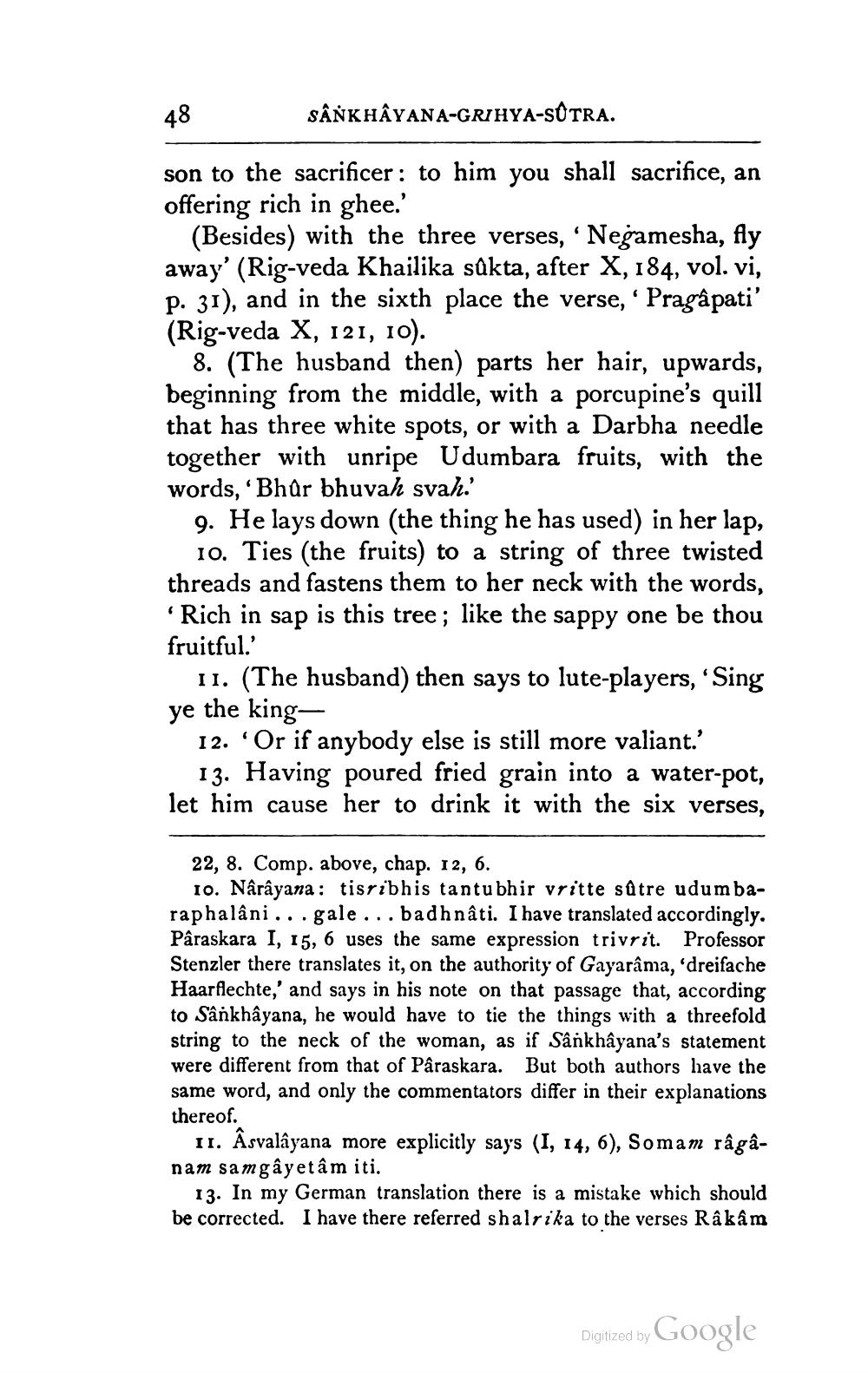________________
48
SANKHAYANA-GRIHYA-SUTRA.
son to the sacrificer: to him you shall sacrifice, an offering rich in ghee.'
(Besides) with the three verses, 'Negamesha, fly away' (Rig-veda Khailika sûkta, after X, 184, vol. vi, p. 31), and in the sixth place the verse, ' Pragâpati' (Rig-veda X, 121, 10).
8. (The husband then) parts her hair, upwards, beginning from the middle, with a porcupine's quill that has three white spots, or with a Darbha needle together with unripe Udumbara fruits, with the words, 'Bhûr bhuvah svah.'
9. He lays down (the thing he has used) in her lap, 10. Ties (the fruits) to a string of three twisted threads and fastens them to her neck with the words, 'Rich in sap is this tree; like the sappy one be thou fruitful.'
II. (The husband) then says to lute-players, 'Sing ye the king
12. 'Or if anybody else is still more valiant.'
13. Having poured fried grain into a water-pot, let him cause her to drink it with the six verses,
22, 8. Comp. above, chap. 12, 6.
10. Nârâyana: tisribhis tantu bhir vritte sûtre udumbaraphalâni... gale... badhnâti. I have translated accordingly. Pâraskara I, 15, 6 uses the same expression trivrit. Professor Stenzler there translates it, on the authority of Gayarâma, 'dreifache Haarflechte,' and says in his note on that passage that, according to Sankhâyana, he would have to tie the things with a threefold string to the neck of the woman, as if Sânkhâyana's statement were different from that of Pâraskara. But both authors have the same word, and only the commentators differ in their explanations thereof.
II. Âsvalâyana more explicitly says (I, 14, 6), Somam râgânam samgâyetâm iti.
13. In my German translation there is a mistake which should be corrected. I have there referred shalrika to the verses Râkâm
Digitized by Google




